These LGBTQ+ Americans Are Living Abroad and Loving It
Find out how three Americans – including a trans content creator – left the U.S. and are now living abroad, what their quality of life is like now, and their advice for LGBTQ+ folx who want to do it, too!
Estimating the precise number of Americans residing overseas poses a challenge. According to the U.S. Department of State’s Bureau of Consular Affairs, approximately nine million U.S. citizens currently live abroad. However, as of November 2023, The Association of Americans Resident Overseas (AARO) suggests a slightly lower figure, estimating at least 5.4 million Americans residing in foreign countries.
Numerous factors contribute to Americans choosing to live abroad, such as concerns for overall safety, job relocations, desirable real estate, more favorable climates, access to healthcare, high-quality education, better tax conditions, political motivations, and more. As another presidential election cycle approaches, conversations about relocation gain prominence.
To gain insights into this trend, we spoke with three Americans currently living abroad. Travel & LGBTQ+ Content Creator Ami King (Ami’s Adventures) is currently based in Oaxaca, Mexico. Keith Wein, founder of 127 Travel, emigrated to Lisbon, Portugal, and splits his time between there and Sitges, Spain. Ernest White II, host of the travel docuseries “Fly Brother with Ernest White II,” currently lives in Vancouver, Canada. The decision to live abroad offers unique experiences and challenges. For these Americans, it represents a pursuit of personal fulfillment, cultural immersion, and a unique perspective on life.
Ami King, Content Creator and Community Cultivator
Oaxaca, Mexico
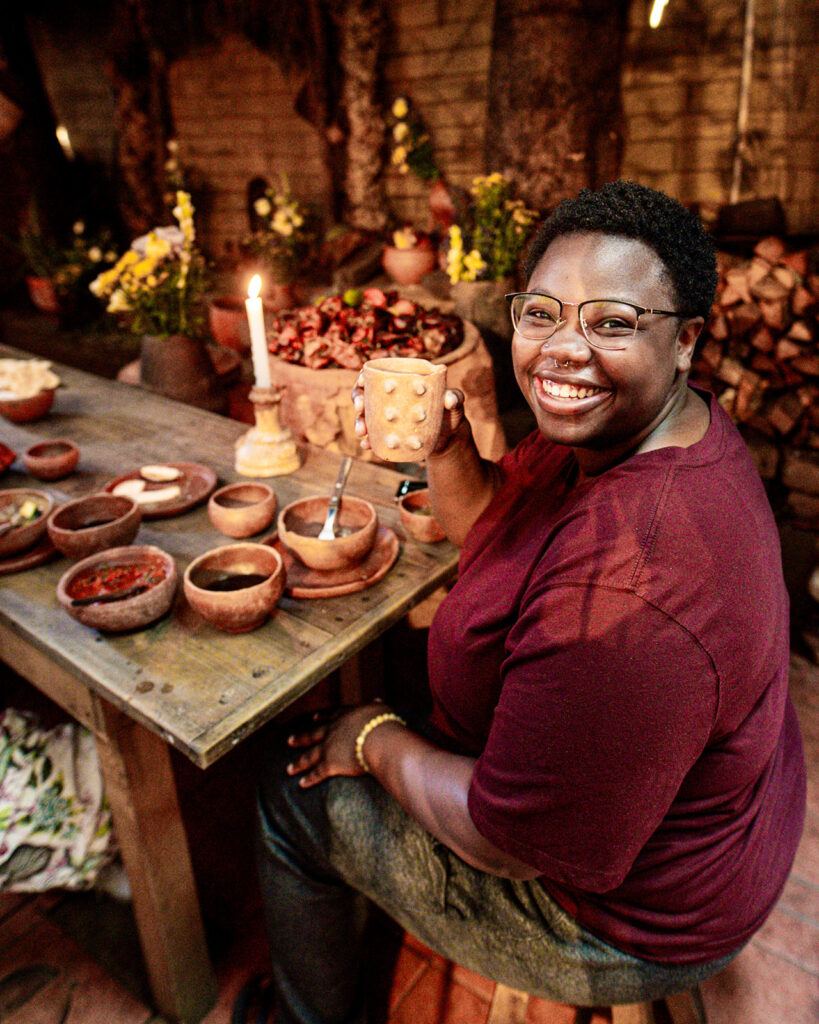
Ami King has embarked on a journey to travel around the world as a transgender man. Born in Atlantic City, New Jersey, he has spent most of his childhood in Las Vegas but currently lives in Oaxaca City, Mexico. This fearless content creator, community cultivator, and public speaker has his own YouTube channel, Ami’s Adventures, to document his real-time travel experiences and to also help offer some guidance to other Black queer travelers who are considering taking a big leap of faith to live abroad.
Oaxaca City is known for its colorful buildings, rich heritage, diverse population, and incredible food. King said, “I’m a pretty spiritual person, and I feel called here in a way. I want to go through the process of building roots and living here. I also acknowledge there are privileges to that. Oaxaca challenges me to stand in my authenticity and embody my authenticity in a way. Being here is keeping me accountable.”
He added, “Something I love about Oaxaca is the culture and how deeply connected it is to its indigenous roots and the Indigenous community. I think it’s beautiful to be able to witness that and do what I can to help nourish that.”
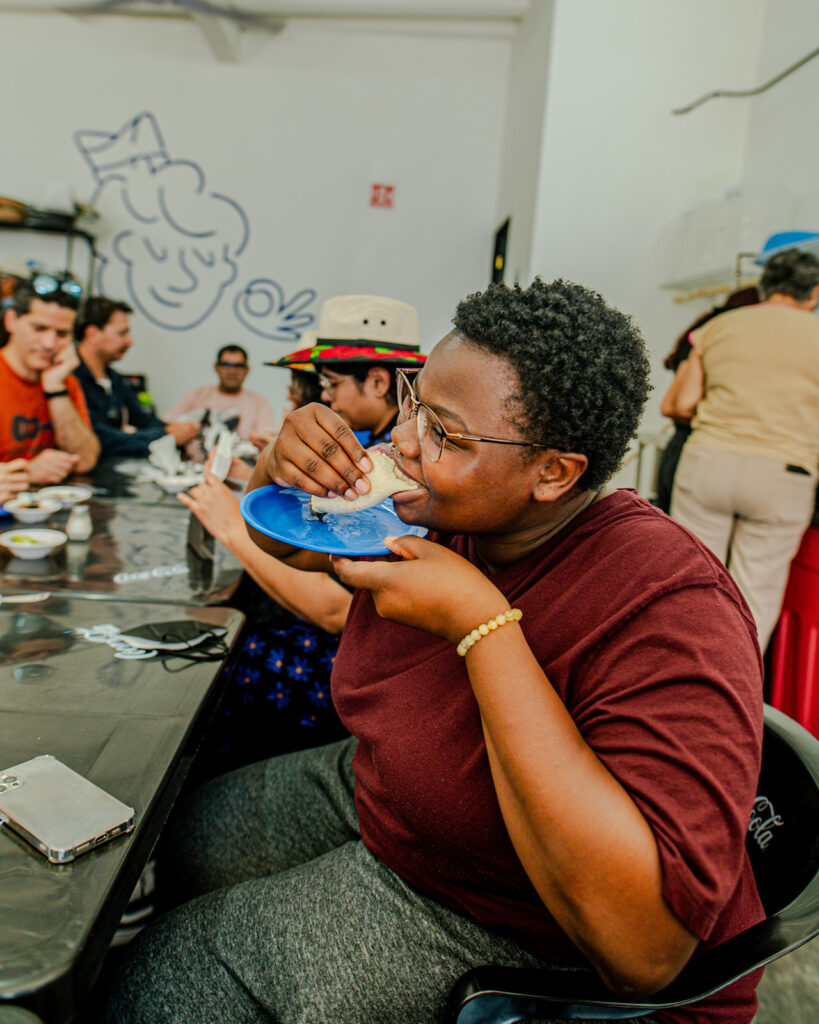
King mentioned the importance of being community-conscious and intentional. He pointed out, “You need to identify what you need, identify what you want, and get really comfortable with being uncomfortable. Do what you can to learn about where you’re going but especially if you’re someone like from the United States.” He emphasized, “Even for me, as someone who is black, queer, trans, and disabled, I still hold privileges wherever I go, because of the passport I hold, because of the dollar that my bank account is in, because of my native language.”
In discussing building community King added, “You also have to understand that people don’t want to be in community with you. You have to understand the impacts of migration and when the people migrating have more access or are put on a pedestal in a different way because of the way whiteness is held in our world and the way in which things are structured. There is a hierarchy. You have to be conscious, intentional, and also understand and do what you can to be in the right relationship with the folks that you’re sharing land with. They’re the only ones I think have the best blueprint of what it looks like or what it means to truly have a good life in this space and on this land, and we should listen to them.”
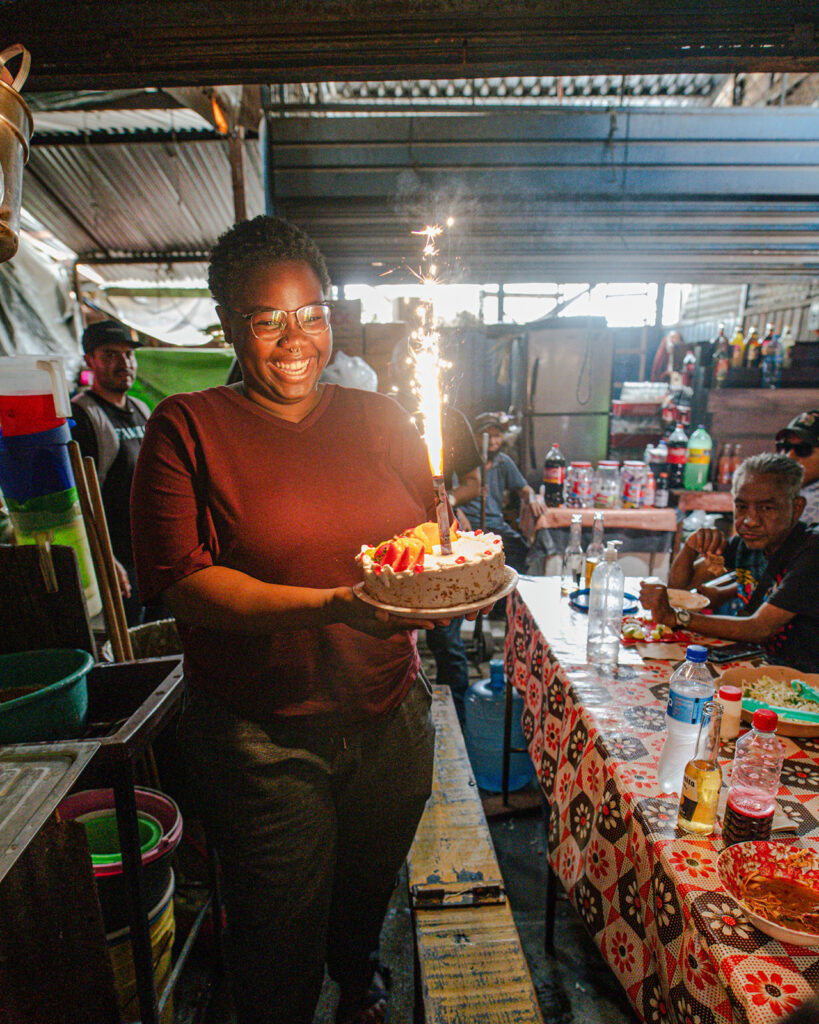
We asked Ami about the differences between living in the States and Oaxaca and he noted, “One big thing is the pace of life, especially as someone who’s autistic and neuro expansive I need to be in spaces that have a slower pace. I do love cities and the accessibility of cities, but I need my day-to-day to be a bit slower. I need to be able to just feel like there’s not always a rush. And that’s one thing I did experience in Mexico City, no matter how much I tried, I always felt like there was this tendency to be on the go, and that is true in the United States. The country of all capitalism has a great job of making us feel like we’re always not on time or that we always need to go to the next thing.”
Something we noticed in our conversations with travelers is the opportunity to enjoy a deeper connection with nature. King said of Oaxaca, “It’s a gift to be on this land. I have more access to nature, as well as a better relationship with nature. Folks here value their connection to the earth and their connection to Mother Nature. This is beautiful as someone who didn’t grow up in this space, and as someone who is trying to decolonize myself, and unlearn so many things.”
Keith Wein, Founder of 127 Travel
Lisbon, Portugal and Sitges, Spain
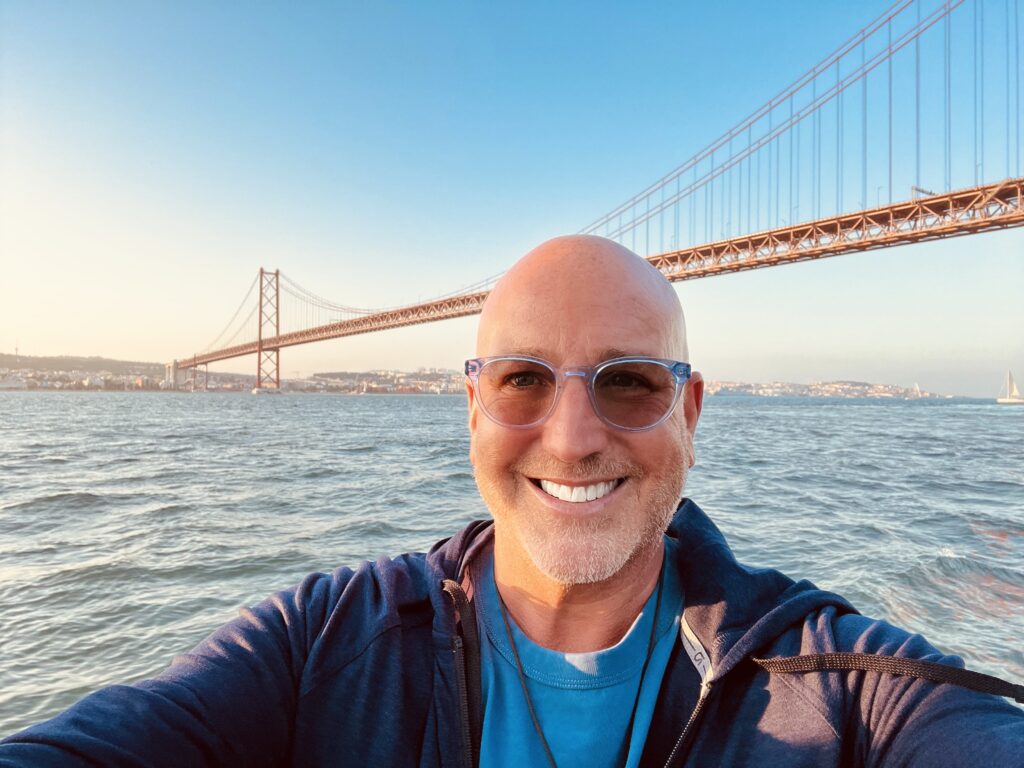
Keith Wein is no stranger to being on the road, initially working in the travel department at Warner Brothers before working as a travel manager for companies like Revlon and Conde Nast and then going into business for himself. 127 Travel is dedicated to VIP leisure and executive business travel. Keith and his husband, Stefano Lorenzo, left the United States for Europe in May of 2022. At the time Portugal was offering a D7 Visa which after three months of being a digital nomad in the country became a residential visa. The couple immigrated to Lisbon, Portugal, and they also have a vacation home in Sitges, Spain where they also spend their time. Since moving abroad Wein has noticed a shift in his overall work/life balance and shared, “My level of anxiety about feeling my self-worth through work is no longer how I feel myself worth.”
Wein added, “Since the COVID-19 pandemic and the Trump era, Sitges has become full of a lot of Americans, expats from the UK who departed after Brexit, and a lot of people who experienced political turmoil in Argentina. It is a really interesting melting pot of expats here.” He shared that a lot of people are turned off by the word expat in Europe these days, adding people prefer to say they are immigrants because there is a connotation that expats sound like “someone who is 70 and retired and moved with their savings to Europe, as opposed to saying I’ve left because there’s so much political turmoil that I had to emigrate to Europe.”
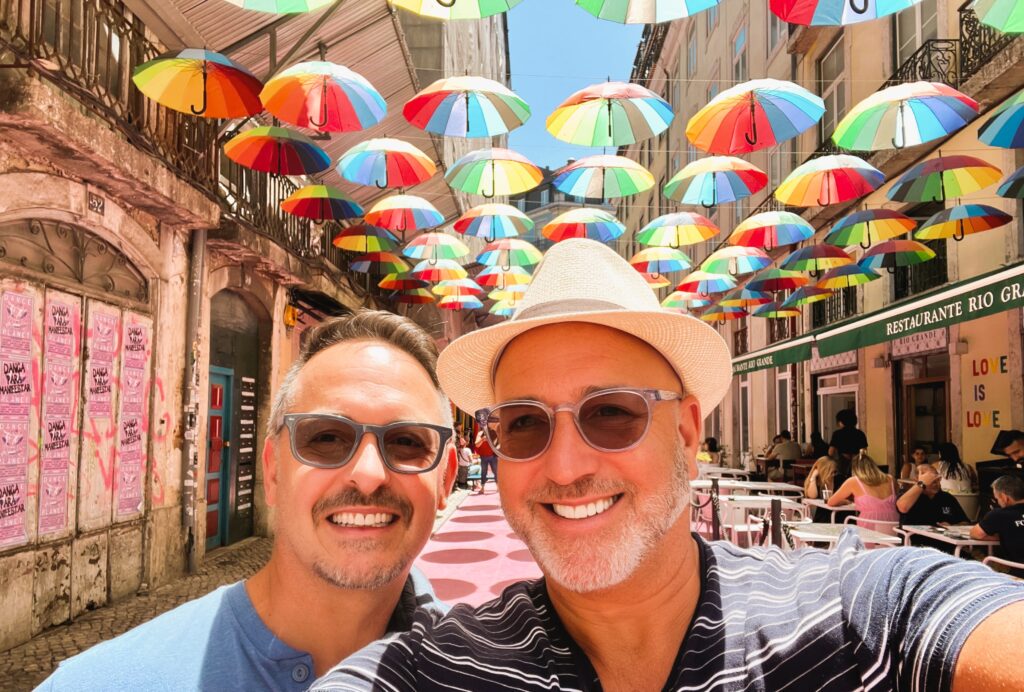
Regarding the immigration process, he shared, “It’s not as hard as many people think. Every country has its own process, but you basically have to do one thousand forms, depending on which way you’re coming to Europe” He added the Golden Visa is the easiest, though if you go as a freelancer or are retiring you have to show proof of a certain amount of money that you have saved. Once you apply for the visa you embark on a series of appointments both stateside and abroad. Wein mentioned the process for him and Stefano was “less complicated than we imagined it to be. In the beginning, it seems overwhelming and then it just becomes easy.”
Wein shared that people he has encountered abroad are not as inundated or obsessed with the news. “People here are living their lives as if everything is wonderful. Every morning when they get up and the birds are flying, and the sun is shining. They’re not in complete devastation about the state of their country. So that changes things dramatically. There’s not a state of turmoil or a constant feeling that their rights are being taken away, that affects people a great deal in their daily life.”
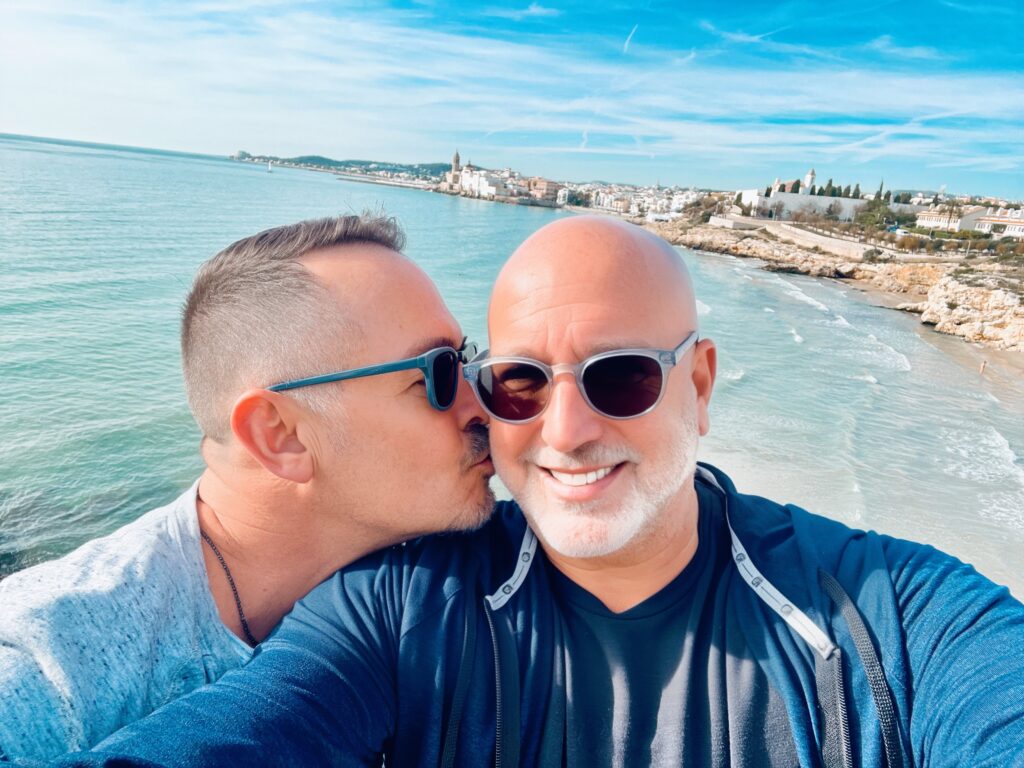
He added, “Health insurance, of course, is a pro. When you move abroad you have to get private health insurance, so you are not taking anything away from people who are natural-born residents. But private health insurance in most of Europe has no deductibles and all the perks and everything covered is $100 a month per person. That’s the top of the line.”
When asked about the ‘cons’ of living abroad, Keith said, “To be honest with you? I don’t have any currently. I’m happy living abroad. I wish I had done it sooner because I feel alive. People are really living. I do miss certain foods, like bagels. I miss bagels. That’s it.”
Ernest White II, Producer and Journalist
Vancouver, British Columbia, Canada
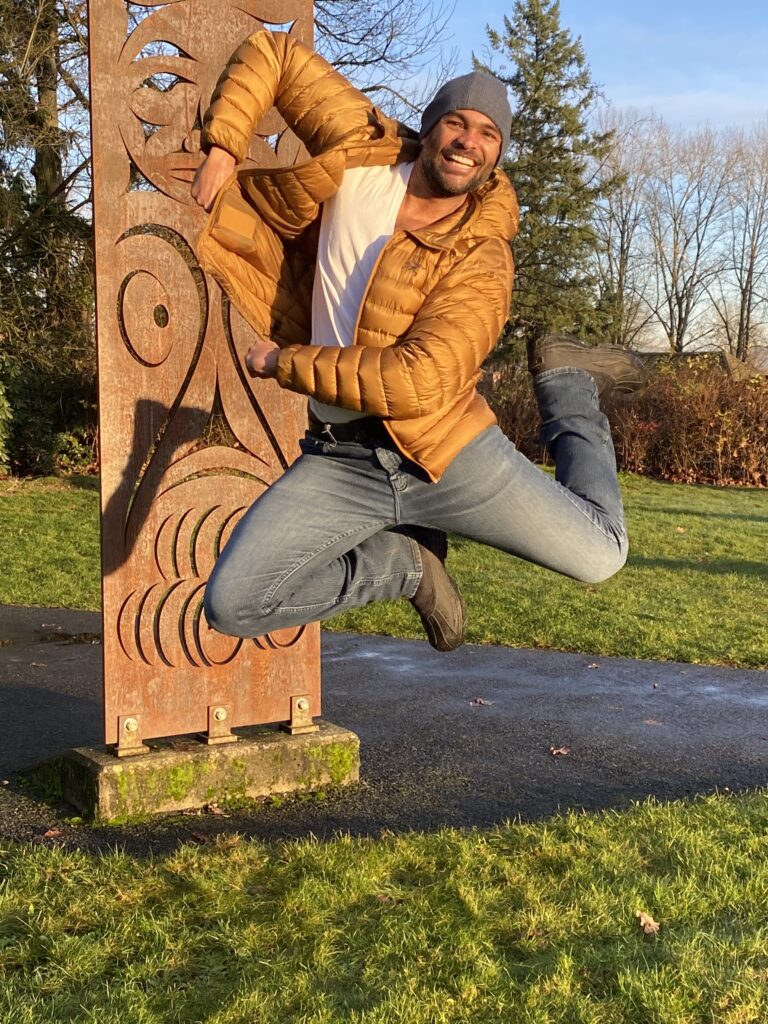
Ernest White II is a storyteller, explorer, producer, and host of the television travel docuseries Fly Brother with Ernest White II, host of the travel- and culture-focused Fly Brother Radio Show, and publisher of multicultural travel portal FlyBrother.net. Originally from Jacksonville, Florida, White currently lives in Vancouver, British Columbia, and told us, “This is my seventh country that I’ve lived in, and I love it here. I’ve never felt more at home in a place and that’s saying a lot, because I have felt at home in other places, but I’ve never felt more at home in my own body.”
He added, “Every day I’m here, I love it more and more. I have a deep-abiding love for not only the place but my life here. I go forest bathing. I go meditating. There’s so much beauty here. In a 20-minute walk from or a quick ride, I can go forest bathing in Stanley Park, or I can be on the north shore, and there are beautiful mountains and trails and views.”
In 2020, White reached “his threshold of political foolishness.” A former professor of history and social sciences, he’d noticed the warning signs and wasn’t going to be “part of any political instability.” However, moving is not necessarily easy for everyone, and he recognizes his ability to easily navigate the world than some can.
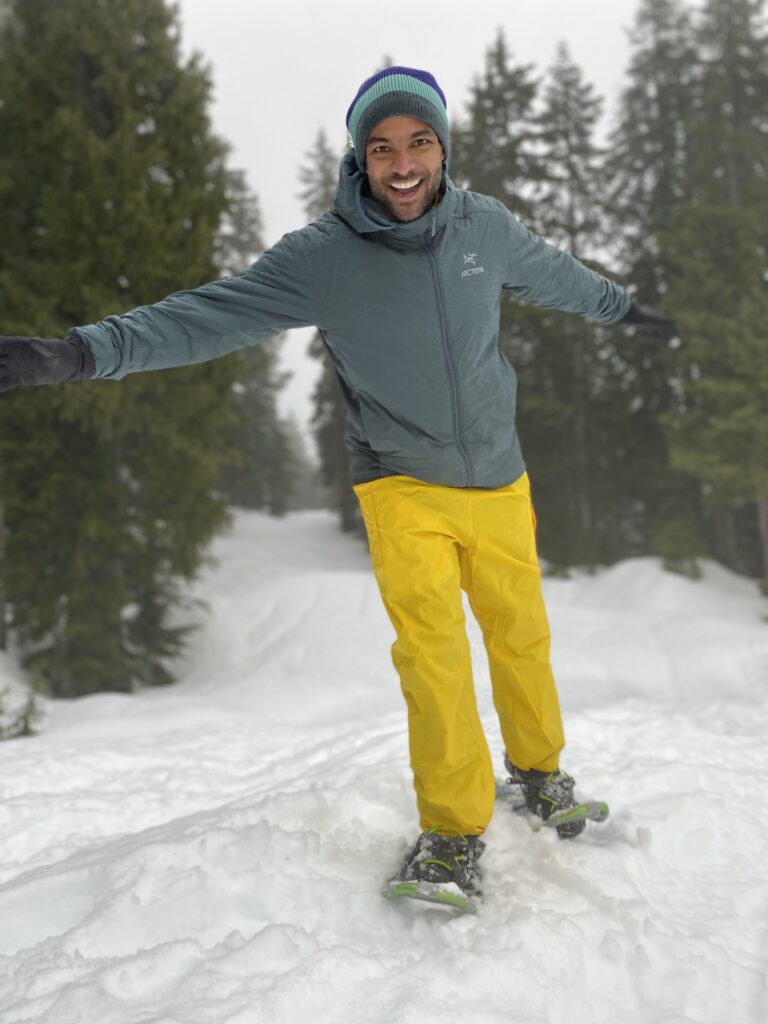
“I feel blessed I was about to do it and make the move. But there are a lot of other people who do not have the resources, who do have that access and ability, and yet, for whatever reason or fear holds them back. I know people who have moved with children. I know people who have moved with significant others. I understand if there are circumstances such as an elderly parent. I get all of that, and I recognize that not everyone has the ability to move in the way some of us do. Yes, I recognize that privilege,” said White.
For anyone who may be thinking about moving out of the country, he recommends, “Consider a vision of your life in another place and then move towards that vision step by step. Get used to uncertainty. Be open, permeable, vulnerable, and it’ll work out.”
White has lived abroad enough times to know that if he wanted to create an opportunity that is as seamless as possible with regards to changing residency, he knew he would need all the support he could get. He hired an immigration attorney who helped him put together a package that included utilizing some of the pathways that existed through the North American Free Trade Agreement (NAFTA).
The U.S.-Mexico-Canada Agreement (USMCA) recently replaced NAFTA. The USMCA website states “USMCA is mutually beneficial for North American workers, farmers, ranchers, and businesses. The new agreement, which entered into force on July 1, 2020, will create a more balanced environment for trade, will support high-paying jobs for Americans, and will grow the North American economy.”
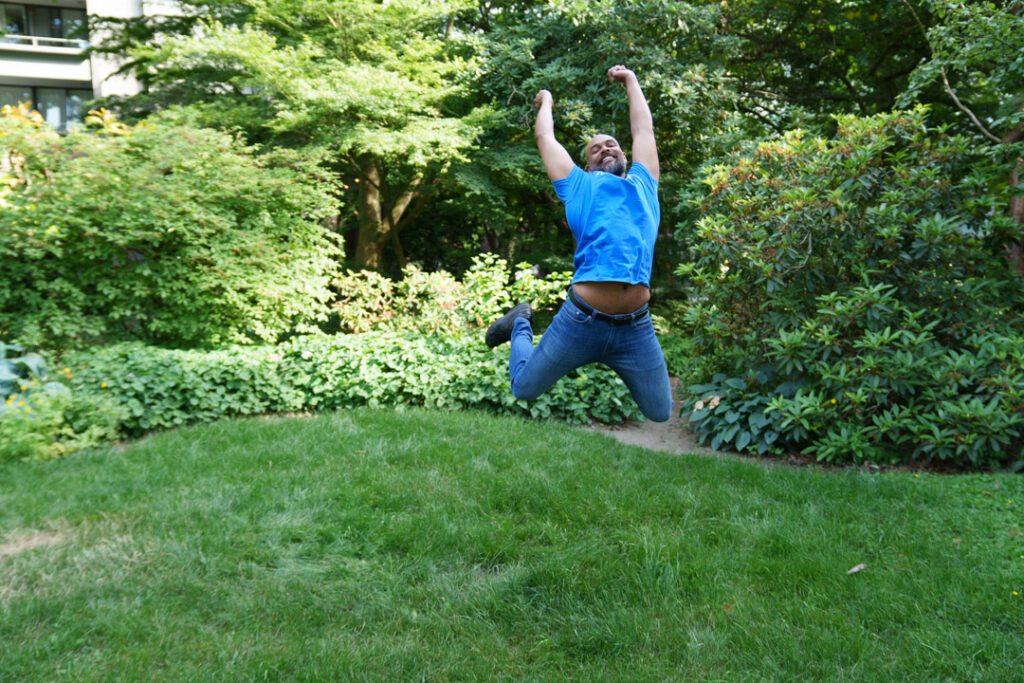
White recalled his lawyer asking if he was moving to marry someone to which he responded, “I hadn’t even kissed a Canadian boy at that point, let alone had one lined up to marry.” Since marriage wasn’t an option, White opened up a subsidiary of his film and television production company and hired himself to come to manage it. “I was given a one-year visa that has since been renewed…in 2020 it was a three-month process from the time I first spoke with the immigration lawyer to the time I crossed the border. I hope it’s still the case next year. Crossing over doesn’t mean all of a sudden, I’ve got permanent residency. That’s a whole other process.” The next phase of the process is applying for permanent residency, which requires paying taxes and additional steps.
White said, “Canada receives a lot of refugees, which is a great thing. It just means that you get bumped down if you’re not from a refugee category simply because of the bandwidth of processing. That does have an impact on the timeline for people who are just not in such dire need or perceived dire need.”
Ending on a positive note, he added, “Everything always comes down the pipeline in a way that is for my highest good. And if you believe that, then you will continue to see that reflected in your life.”
Want to know more about living abroad and expat life? Get a reality check about what it’s really like to live abroad from a gay couple that recently left Washington, DC to live in Medellín, Colombia.
Plan your move abroad with a pre-move checklist and check out a list of the best places to go if you’re a queer digital nomad or planning to retire abroad!
Vacationer also has a list of tips and a 60-day pre-move checklist to help with your potential move outside of the United States.

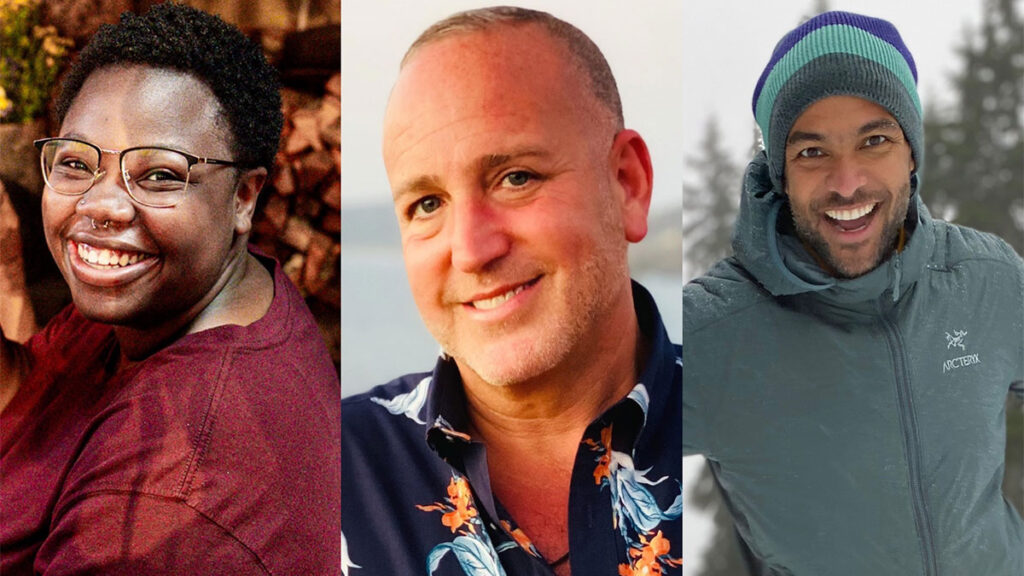


Fabulous article!
I wish I were younger when I had my health and the energy to just go!
I miss my youngest stepson who left for Europe a couple of years ago. He tells me he has never been happier. That’s all I care about.
Maybe one day I’ll surprise him with a visit..lol!
So joyful to read such positive reviews.